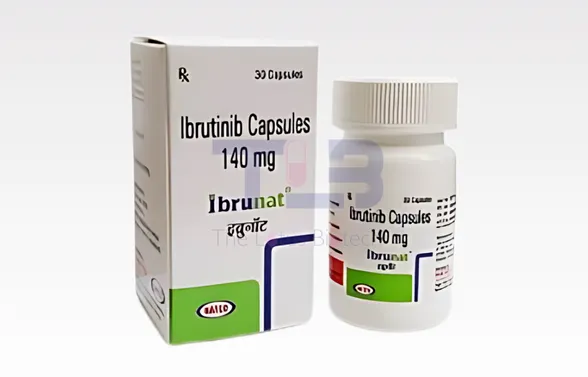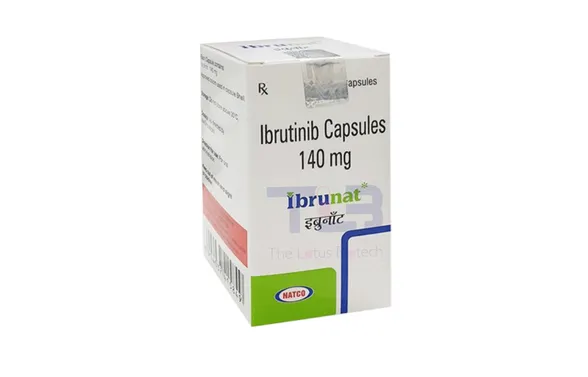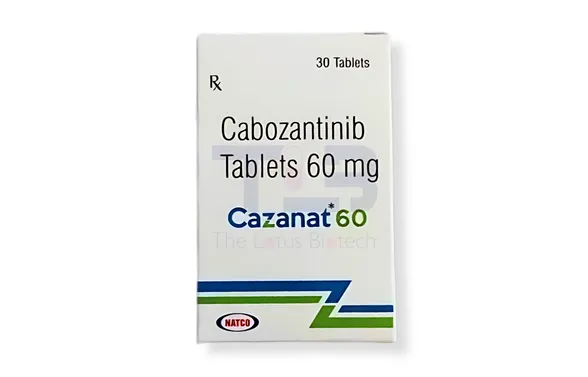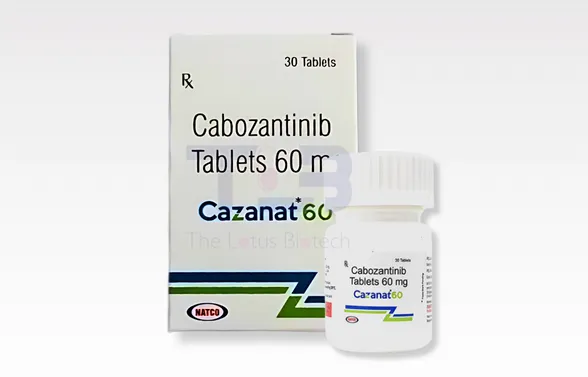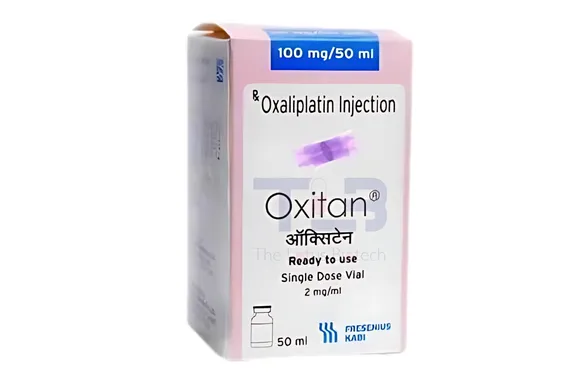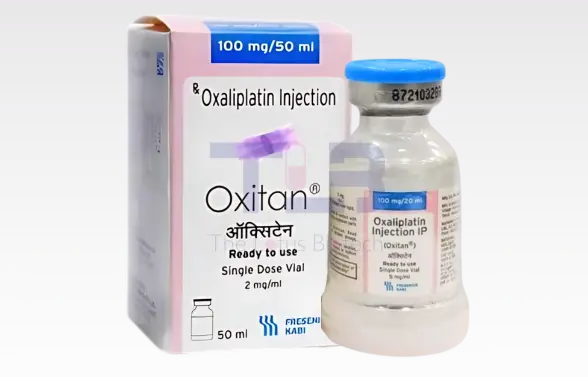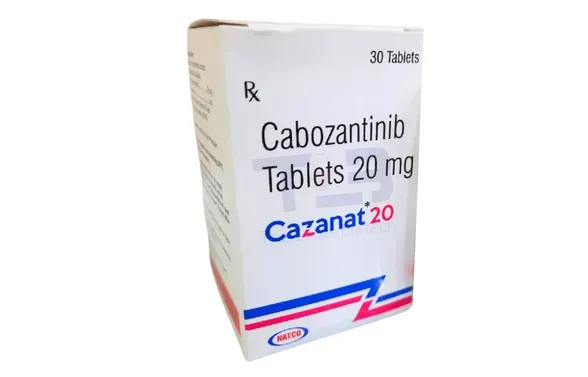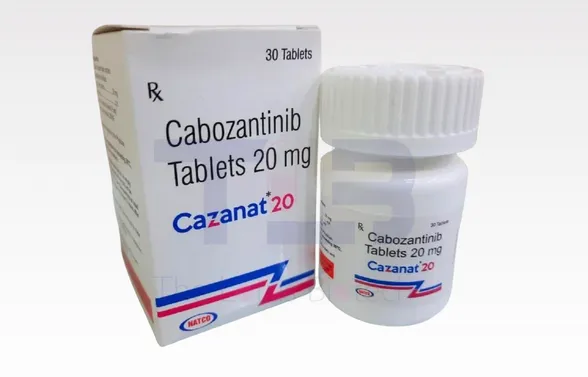Description
| Medicine | Ibrunat 140 mg Capsules |
| Marketed By | Natco Pharma Ltd. |
| Active Ingredient | Ibrutinib |
| Storage | Store at a temperature below 30 °C. |
| Consume Type | Oral |
Ibrunat 140 mg Capsules – Introduction
Ibrunat 140 mg Capsule contains Ibrutinib, which is prescribed for the treatment of various blood cancers, including mantle cell lymphoma (MCL), chronic lymphocytic leukemia (CLL), small lymphocytic lymphoma (CLL), Waldenstrom’s macroglobulinemia, and Marginal zone lymphoma (MZL).
How Ibrunat 140 mg Capsules Works: A Closer Look
Ibrunat 140 mg capsules contain Ibrutinib 140 mg, an antineoplastic drug that inhibits a particular protein known as Bruton’s tyrosine kinase (BTK). BTK is essential to the survival and proliferation of cancer cells. Ibrunat 140 mg slows down the growth and division of cancer cells by blocking BTK, ultimately resulting in their apoptosis (death).
Use
- Mantle cell lymphoma
- Chronic lymphocytic leukemia (Blood cancer)
- Small lymphocytic lymphoma
- Waldenstrom’s macroglobulinemia
- Chronic graft vs. host disease after failure of systemic therapy
Ibrunat Ibrutinib 140 mg Capsules- The Benefits
Mantle Cell Lymphoma:
Ibrunat 140 mg Capsules offer significant benefits in treating mantle cell lymphoma. This medication targets specific proteins in cancer cells, inhibiting their growth and spread.
Chronic Lymphocytic Leukemia (Blood Cancer):
For chronic lymphocytic leukemia (CLL), a type of blood cancer affecting white blood cells, Ibrunat 140 mg Capsules containing Ibrutinib have proven to be a groundbreaking treatment. This drug has shown remarkable success in improving outcomes for CLL patients, including higher response rates and prolonged periods of remission.
Small Lymphocytic Lymphoma:
Ibrutinib, the active ingredient in Ibrunat 140 mg Capsules, has effectively treated small lymphocytic lymphoma (SLL), closely related to CLL. By disrupting the signaling pathways that sustain cancer cells, this medication helps to control the growth and spread of SLL, leading to improved patient outcomes and a higher quality of life.
Waldenstrom’s Macroglobulinemia:
Ibrunat 140 mg Ibrutinib-containing capsules show promise in treating Waldenstrom’s macroglobulinemia, a rare form of lymphoma marked by aberrant antibody production. Ibrutinib targets specific proteins involved in the growth and survival of cancerous cells, leading to a reduction in tumor size, and improved blood counts.
Chronic Graft vs. Host Disease After Failure of Systemic Therapy:
Ibrunat 140 mg Capsules with Ibrutinib provide hope for patients who have poor response to previous systemic therapies and chronic graft-versus-host disease (GVHD) following allogeneic stem cell transplantation. By controlling immune responses and lowering inflammation, imatinib has demonstrated effectiveness in treating the symptoms of GVHD. This has improved patient outcomes and may open up new treatment options for patients not responding to conventional therapies.
Ibrunat Ibrutinib 140 mg Capsules- A Usage Guide
Take Ibrunat 140 mg at the same time every day. Do not consume grapefruit or orange juice in any form while taking Ibrunat 140 mg. Drink plenty of fluids to stay hydrated.
Ibrunat Ibrutinib 140 mg Capsules- Side Effects
Most side effects go away and do not need to be treated once your body adjusts to the medication. If they continue, or if you are concerned, see your physician.
Common Side Effects
- Pneumonia
- Rash
- Diarrhea
- Muscle spasm
- Hemorrhage
- Weight loss
- Low blood platelets
- Fatigue
- Nausea
- Fever
- Anemia (low number of red blood cells)
- Headache
- Peripheral edema
- Stomatitis (Inflammation of the mouth)
- High blood pressure
- Bruising
- Dry eye
- Decreased white blood cell count (neutrophils)
- Musculoskeletal (bone, muscle or joint) pain
- Urinary tract infection
- Second primary malignancies
- Subdural hematoma
[Note: Different drugs can cause varying side effects. To get accurate information about a medication’s specific side effects, refer to the official prescription information or consult your healthcare provider.]
Ibrunat Ibrutinib 140 mg Capsules- A Guide to Safety
Alcohol
Unsafe
Ibrunat 140 mg Capsules and alcohol together may make you extremely sleepy, which could be harmful.
Pregnancy
Consult Your Doctor
Using Ibrunat 140 mg Capsules during pregnancy is not advised as it may cause birth defects and the death of the fetus. If you are pregnant or suspect you might be pregnant, consult your doctor before using this capsule.
Breastfeeding
Unsafe
It is risky to use Ibrunat 140 mg during breastfeeding. The drug might injure the fetus if it enters breast milk, according to the scant human data.
Driving
Unsafe
Do not drive or operate heavy machinery if you are feeling lightheaded, exhausted, or experiencing blurred vision. For more advice, please see your physician.
Liver
Caution
Patients with liver disease should take Ibrunat 140 mg with caution. Your doctor will perform close monitoring of liver function while receiving this medicine.
Kidney
Caution
Patients with kidney disease should take Ibrunat 140 mg with caution. Your doctor will perform close monitoring of renal function while receiving this medicine.
Fact Box
| Chemical Group | A member of the class of acrylamides |
| Addictive | No |
| Medication Class | Tyrosine Kinase Inhibitor |
| Action Class/Category | Anti-neoplastic agent |
Swift Advice
- Immediate medical attention is necessary if you encounter bleeding, infection, difficulty breathing, or chest discomfort.
- Inform your doctor about any history of heart failure or hepatitis infection.
- Avoid taking this medicine before or after surgery as it delays wound healing.
- Consult your healthcare provider for reliable contraception options during treatment and for one month after completing Ibrunat 140 mg doses.
- Take the medication consistently at the same time daily, with or without food.
- Complete the prescribed course without skipping any dose as directed by your doctor.
- Employ effective birth control methods to prevent pregnancy while using this medication.
- Your doctor may advise regular blood tests to monitor liver function and blood cell count.
How does ibrutinib work?
Ibrunat 140 mg capsules containing ibrutinib works by inhibiting Bruton’s tyrosine kinase (BTK), a protein involved in the growth and survival of cancer cells, particularly in conditions like chronic lymphocytic leukemia (CLL) and mantle cell lymphoma (MCL).
How long do ibrutinib side effects last?
The duration of Ibrunat 140 mg Capsule side effects can vary among individuals and may persist for the duration of treatment. Your healthcare provider can provide guidance on managing and alleviating side effects.
How long is treatment with ibrutinib?
Treatment duration with Ibrunat 140 mg containing ibrutinib depends on factors such as the type and stage of cancer, response to treatment, and individual patient considerations. It may be continued as long as it remains effective and well-tolerated.
Is ibrutinib a BTK inhibitor?
Yes, Ibrunat 140 mg is a BTK inhibitor, meaning it targets and inhibits Bruton’s tyrosine kinase, a key enzyme involved in the signaling pathways of cancer cells.
Who is the best wholesale Ibrunat 140mg Capsules Supplier?
The best wholesale supplier for Ibrunat 140mg Capsules is The Lotus Biotech. We are known for our high-quality pharmaceutical products, competitive pricing, and reliable global distribution network. We ensure compliance with international standards, providing genuine and effective medications for wholesalers and healthcare providers. For bulk orders, competitive rates, and seamless shipping, The Lotus Biotech stands out as a trusted choice in the pharmaceutical industry.

